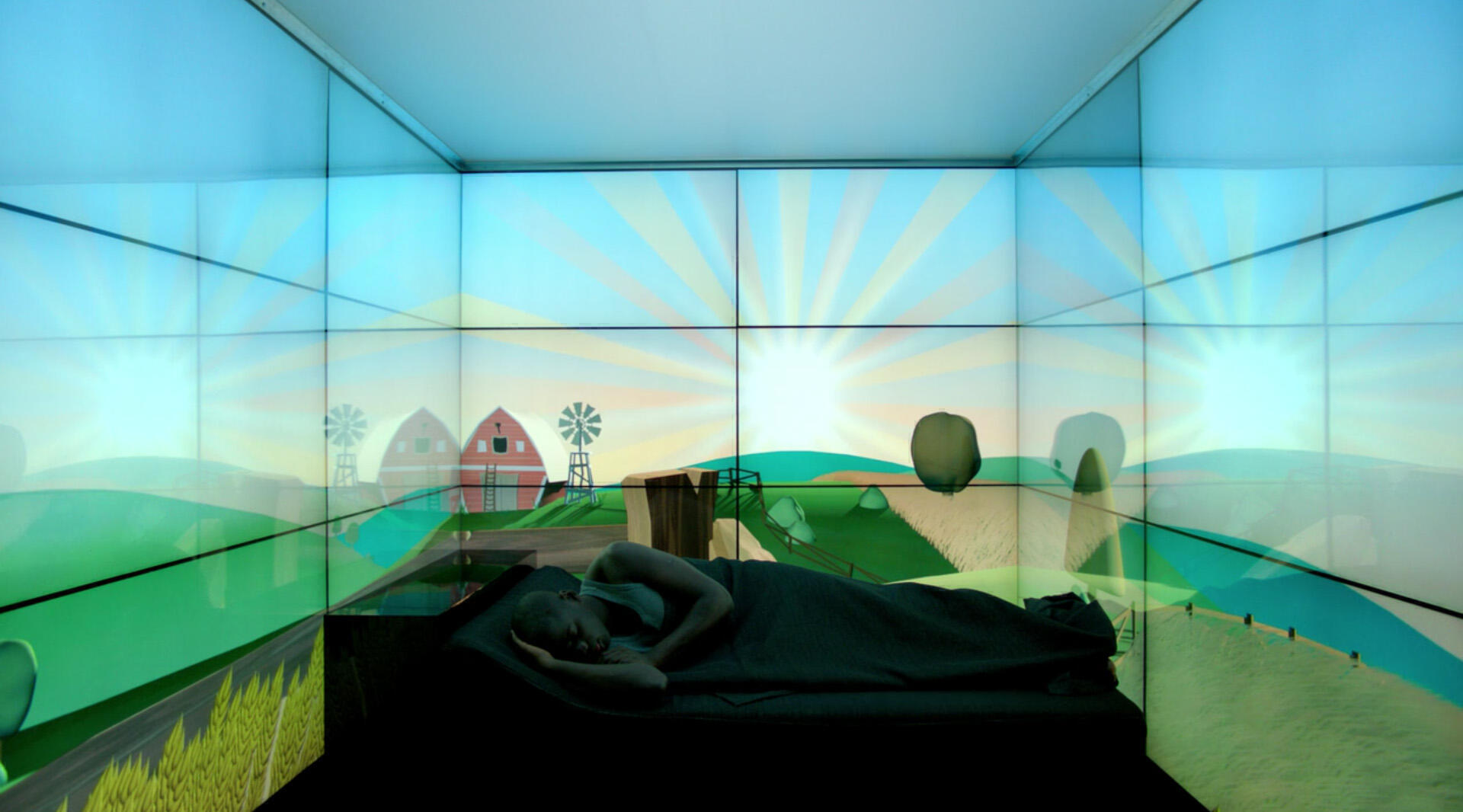Join or Sign In
Sign in to customize your TV listings
By joining TV Guide, you agree to our Terms of Use and acknowledge the data practices in our Privacy Policy.

Black Mirror (Netflix)
In Black Mirror's '15 Million' credits, the futuristic society relies on a constant stream of entertainment to get them through the dystopia of their day to day. According TVs are everywhere, including all four walls of the characters' dormitories.
Black Mirror (Netflix)
'USS Callister,' a perfect Star Trek parody served up by Black Mirror, posited the world's most terrifying holodeck. Simple pop a little button onto your temple and sink into a cybernetic network that allows to interact with the game in three dimensions (and with all five senses).
Altered Carbon (Netflix)
In Netflix's Altered Carbon, men and women no longer have to hold the devices to make phone calls or access what we would refer to as the internet. Instead, they have ocular implants that act almost like a contact lens, allowing information to be displayed right in front of their eyes.
Doctor Who (BBC America)
In the Season 2 episode 'Rise of the Cyberman,' the Doctor (David Tennant), Rose (Billie Piper) and Mickey (Noel Clarke) land in an alternate universe in which men and women wear EarPods that allow information to be downloaded directly into their brain.
Doctor Who (BBC America)
During Doctor Who's tenth season, the Doctor (Peter Capaldi) is rendered blind. In 'Extremis,' he uses his sonic sunglasses to be able to feed information directly into his brain.
Black Mirror (Netflix)
Black Mirror's 'Playtest' is one of the most terrifying episodes of the whole series, and starts out innocuously with this interactive hologram. Classic Whack-a-mole materializes from thin air -- imagine a first person shooter from this perspective.
Doctor Who (BBC America)
During Doctor Who's tenth season, the Doctor (Peter Capaldi) is rendered blind. In 'Extremis,' he uses his sonic sunglasses to be able to feed information directly into his brain. At other times, the Doctor also discusses his browser history, suggesting the sunglasses also allow him to watch TV and surf the internet.
Black Mirror (Netflix)
'White Christmas' serves up Jon Hamm once again in a phenomenal dramatic role which also happens to involve the invention of a real life mute button. With just a simple neural implant and one click, people can block others, their forms becoming a grey blob with unintelligible gibberish spewing from their mouths anytime they speak.
Star Trek: Discovery (CBS All Access)
Star Trek: Discovery uses a number of technologically advanced devices, including this handheld one which serves not just a supercomputer aka a cell phone, but as sensitive scientific equipment, significantly altering the ways in which humanity interacts with it's unknown surroundings.
Westworld (HBO)
On Westworld, Dr. Ford (Anthony Hopkins) uses a handheld tablet to update one of the hosts in 'The Stray.' With just one click, Dr. Ford not only changes a fictional storyline, but an entire sentient personality.
Star Trek: Discovery (CBS All Access)
Star Trek: Discovery technology doesn't just stop at advances in portability - it also redefines the way people work in the future. Every space is a standing desk and an active workspace when screens are so thin they are see-through. (Seriously though, where are the privacy screens.)
Westworld (HBO)
In Westworld's 'The Adversary,' the host known as Maeve (Thandie Newton) uses another handheld tablet to increase her own attributes. In a world that's survival of the fittest, it only makes sense that figments of our imagination use the same tools to create their own stories.